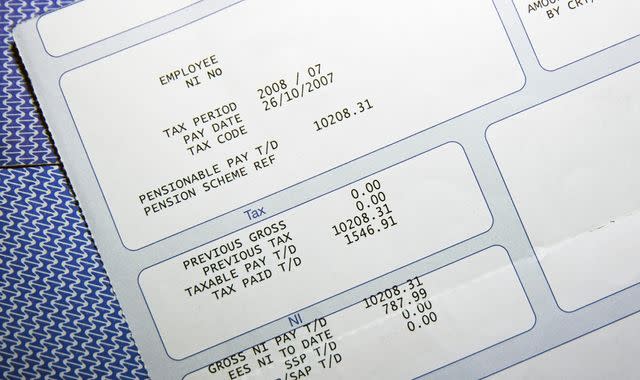Estee Lauder, Greggs and easyjet among employers HMRC says failed to pay minimum wage

Estee Lauder, Greggs and easyjet are among well-known employers named by the government for failing to pay workers the national living wage.
The companies feature in a list of 542 firms forced to repay more than £16m to 172,000 workers in underpayments since 2015, some of whom were also fined.
The national minimum wage (NMW) is currently £10.42 per hour for over-21s, due to rise to £11.44 in April, and £7.49 and £8.60 respectively for 18- to 20-year-olds.
HMRC investigations conducted and closed between 2015 and 2023 found numerous breaches of the national minimum wage, including making employees pay for their uniforms out of wages, and deductions illegally made to cover PPE, food, childcare and training costs.
Workers were also underpaid for their time, with hours rounded down, or travel time, mandatory training and trial shifts excluded from payment.
The worst offender was recruitment company Staffline, which failed to pay more than £5m to nearly 34,000 workers.
Casino and bingo owner the Rank Group were second, underpaying 5,629 workers by £960,000, and Estee Lauder third, with 5,933 employees of the cosmetics giant receiving almost £900,000 less than they were due.
Easyjet was the eighth worst offender with almost 4,000 workers underpaid by nearly £340,000, and high street baker Greggs eleventh, short by nearly £220,000 to nearly 4,800 employees.
The Department of Business, Trade and Industrial Strategy did not disclose how much companies have been fined for breaching NMW law, citing companies' right to privacy, but said the "naming and shaming" was intended to "send a message that no employer is exempt from paying their workers that statutory minimum wage".
Pub chain Mitchell and Butlers, food giant 2 Sisters Poultry and NHS Highland were also among the top 25 worst offenders.
Sky Subscribers Services Limited, a division of Sky, which owns Sky News, was found to have underpaid 757 employees by a total of £55,067.
Introduced 25 years ago, the national minimum wage has been a key policy of both Labour and Conservative governments to try and end low pay. The Low Pay Commission currently has a mandate to increase the hourly NMW to the equivalent of two-thirds of the average salary, a goal it says will be achieved with April's increase.
Despite the steady increase in basic wages, the labour market is widely considered an impediment to economic growth, with more than 900,000 vacancies despite relatively low and stable unemployment, and more than 9 million people declared "economically inactive".
Unions say that unstable and insecure working conditions, exemplified by the use of zero-hours contracts, which confer no benefits of employment rights to workers, have contributed, acting as a counter to rising basic pay.
Estee Lauder said it had "never intentionally" breached the legislation, blaming the underpayments on a misinterpretation of HMRC guidance regarding deductions for staff clothing.
A Greggs spokesperson said: "During a review with HMRC, it was brought to our attention that our uniform policy for retail colleagues was not aligned with HMRC's interpretation of national minimum wage regulations, and as a result, we revised our uniform policy in January 2018.
"Once the review was concluded, we reimbursed colleagues and former colleagues who had been impacted by this unintended error."
A spokesperson for Rank Group said: "This issue relates to an historic situation involving some of our National Minimum Wage colleagues which was rectified in 2019.
"As soon as we were made aware of an inadvertent technical breach of the legislation, we quickly identified who was impacted and we corrected our practices to ensure we were in line with the strict legislative criteria at that time."
A spokesperson for easyJet said: "This was a genuine error which we immediately rectified and issued back payments to all affected crew.
While all crew in this period (2014-2019) were paid in line with the NMW for their total annual salary, this review in 2018 identified a specific issue affecting our new entrant cabin crew only during their initial three week training course, as some payments only apply once crew are flying. easyJet is committed to treating its people fairly, paying competitively and complying with market practices."
The other companies named have been approached for comment.


